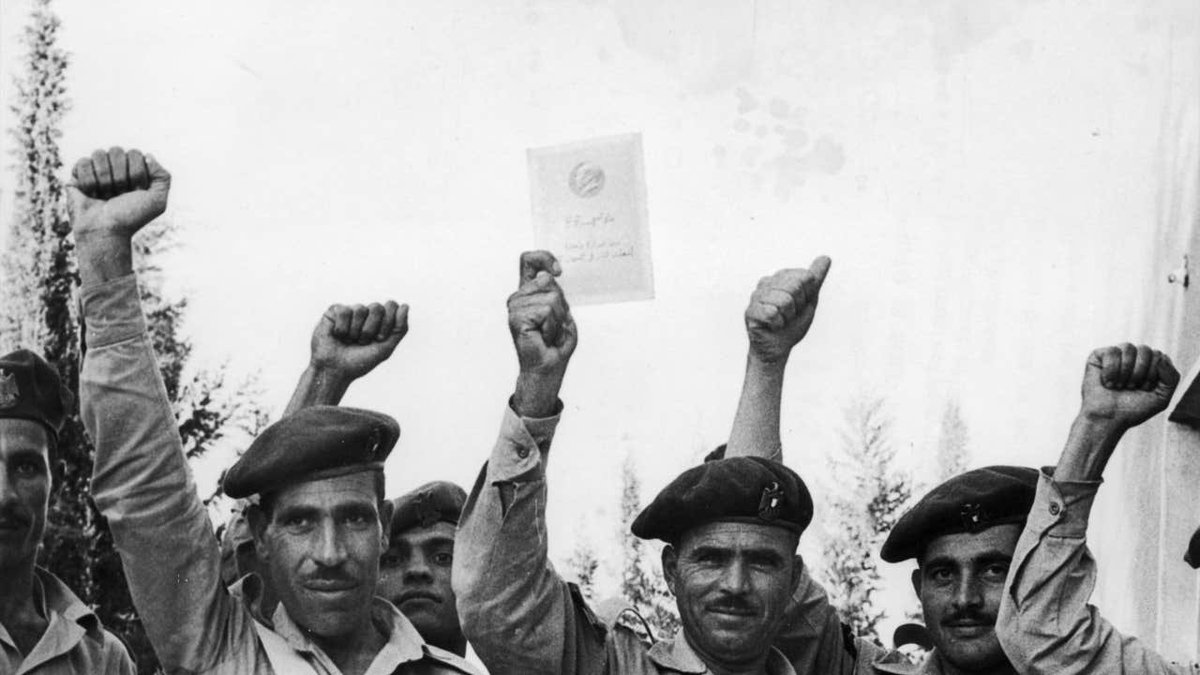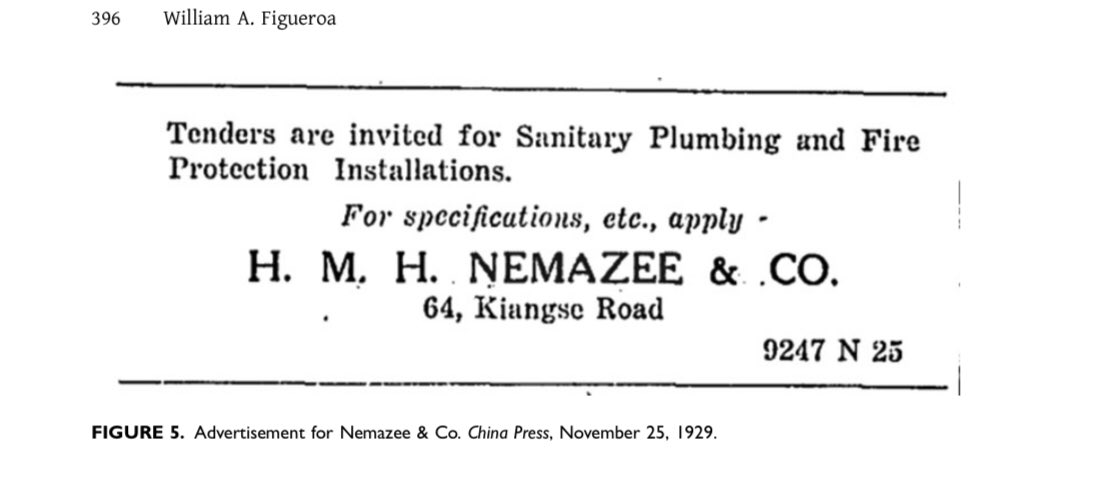Yesterday I discussed China's close relationship with #Israel.
But it wasn't always that way.
From 1955 to the mid-1970s, #China was the only non-Muslim, non-Arab state to condemn #Zionism as #racism.
Why was that? A #thread 🧵on #Sino-#Palestine.
#history #twitterstorians 1/
But it wasn't always that way.
From 1955 to the mid-1970s, #China was the only non-Muslim, non-Arab state to condemn #Zionism as #racism.
Why was that? A #thread 🧵on #Sino-#Palestine.
#history #twitterstorians 1/

Shortly after the Communist Revolution of 1949, China condemned Israel in the strongest possible terms. Israel was deemed an “imperial tool for suppressing national-democratic revolution movement of the Arab countries,” and a “Zionist entity,” equating Zionism to racism. 2/ 

Israel was always denounced as aggressive; any negotiated settlement was a conspiracy and “a betrayal of the interests of the Arab people.” People’s Daily proudly proclaimed “...we have nothing to do with Israel, neither will we have anything to do with it in the future.” 3/ 

Beijing exhorted the Palestinians to “continue their triumphant march along the path of armed struggle till final victory,” “regain the nation of Palestine,” and fight a “just struggle” of “life and death.” As late as 1988, Israeli policy was as “savage” and “expansionist”... 4/ 

...even as unofficial ties had increased exponentially and normalization was already in full swing.
Despite this harsh rhetoric, behind the scenes, China was far more flexible. After 1949 , Israel was one of the earliest non-Communist states to recognize the CCP over the ROC. 5/
Despite this harsh rhetoric, behind the scenes, China was far more flexible. After 1949 , Israel was one of the earliest non-Communist states to recognize the CCP over the ROC. 5/

China flirted with establishing relations with Israel in the early 1950s, but ended talks in 1955 with the Bandung Conference, the first large scale Afro-Asian conference, which signaled Beijing's official policy shift to the principal of non-alignment and the Arab states. 6/ 

Following their new allies, China cut off all communication with Israel and began attacking it in the press. By 1958, China had established official relations with Egypt, Syria, Yemen, Iraq, and Sudan. At the same time, anti-Israeli rhetoric reached a fevered pitch, and... 7/ 

continued to intensify during the Cultural Revolution in 1966. By the mid-1960s, China supported Palestinian liberation groups with small arms, one of the first countries to do so, and made a significant contribution to the launching of the Palestinian guerilla movement. 8/ 

This was the only substantial case of China providing direct support to the Palestinian cause. In short order, the CCP planners found that this direct support ran counter to their overarching objective of achieving international recognition and joining the United Nations. 9/ 

Creating an armed “third column” upset some countries like Jordan, as it upset the balance of power. Rhetorical support was much safer, and material support was greatly reduced by late 1960s. Arab intellectuals lamented the loss of PRC revolutionary or ideological “purity”... 10/ 

...as its policies consistently failed to live up to the Arab expectations.
By 1971, China finally achieved a critical mass of states willing to vote for UN recognition, and with Nixon's visit to Beijing, the last obstacle to normalization of relations with Israel fell. 11/
By 1971, China finally achieved a critical mass of states willing to vote for UN recognition, and with Nixon's visit to Beijing, the last obstacle to normalization of relations with Israel fell. 11/

As early as 1973, despite official hostility, China began to send quiet signals to Tel Aviv, while keeping a close eye on the reaction of its Arab allies. By mid-1970s, China began to allow for distinctions in official media between the Israeli government and people... 12/ 



...and no longer opposed Israel's right to exist. In 1975, the government released statements of support for Henry Kissinger's negotiated peace efforts. By 1977, they endorsed Sadat's negotiated settlement with Israel, once decried as an imperialist conspiracy. 13/ 

This set the stage for a dramatic expansion of ties in the 1980s and 1990s. China purchased billions of dollars of military technology from Israel, including armor, artillery, missiles, and electronics, although this was all publically denied. By the middle of the decade... 14/ 

...over 60 Israeli companies had secret joint ventures with China, typically run through middlemen. There were also diplomatic meetings through third parties, such as Jordan. At the same time, China maintained a public anti-Israeli position and refused official normalization. 15/
This is because China's economic ties to the Arab states remained important after it joined the U.N. China sold them weapons during the 1980s to acquire foreign currency reserves and consolidate its growing economic power. Substantial trade ties had also begun to develop. 16/ 

Anti-Israeli rhetoric was a useful tool for maintaining good relations with the Arab world, and so it remained. The Israelis tolerated it, just as the Americans tolerated the Chinese press continuing to call them imperialists after Sino-American rapprochemont. 17/ 

That the rhetoric persisted illustrates its essentially utilitarian and pragmatic function. Throughout the period, the driving force of Chinese opposition to Israel was a pragmatic assessment of alliances, not a commitment to solidarity or the Palestinian cause. 18/ 

Which leads us right back to where I started yesterday...
https://twitter.com/IranChinaGuy/status/1394733865667858441?s=20
• • •
Missing some Tweet in this thread? You can try to
force a refresh








